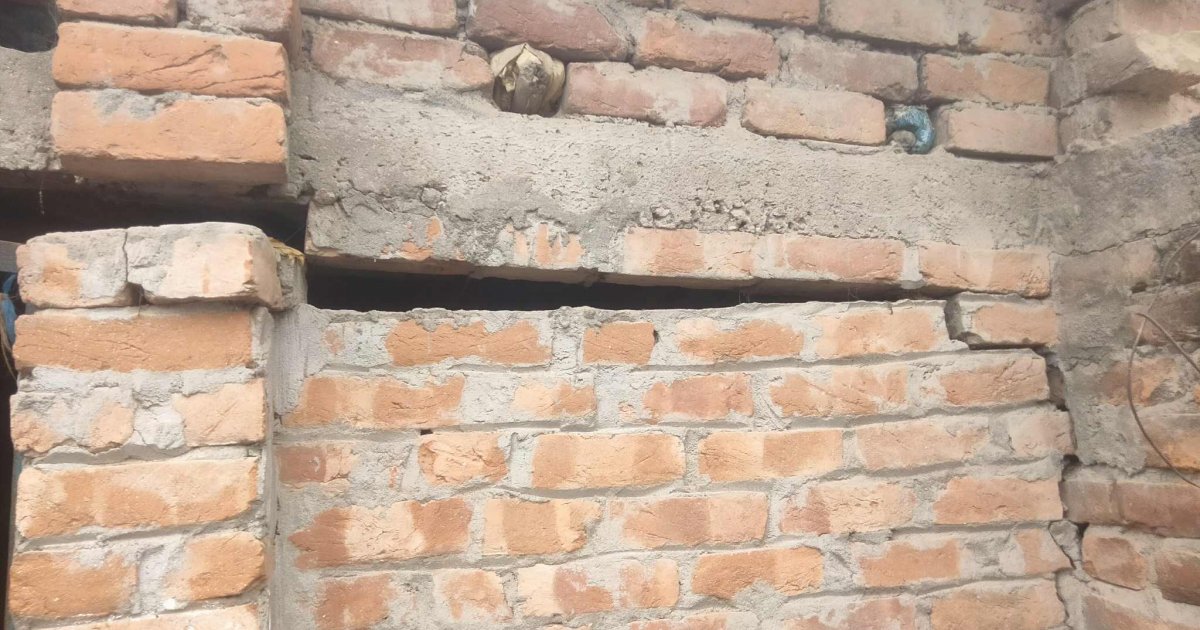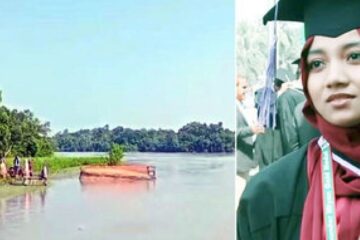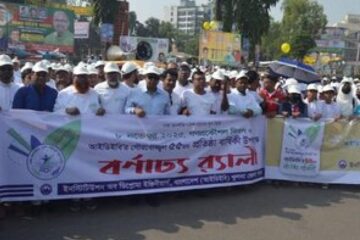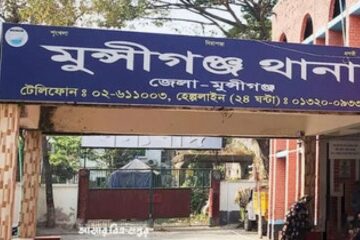Severe land subsidence has been reported in 13 villages, including Patrapara, adjacent to the Barapukuria coal mine in Parbatipur, Dinajpur, as a result of underground coal extraction.
Houses, agricultural lands and roads are gradually sinking, leaving thousands of families in a state of constant fear.
Villagers say they are losing sleep at night, fearing that their entire area might collapse into the mining zone at any moment.
To highlight the crisis and urge immediate administrative intervention, the residents under the banner of the “Basat Bari Rakkha Committee, Patrapara” held a press conference on Thursday.
Abul Kalam Azad, president of the committee, said that due to years of coal extraction, the eastern part of Patrapara village has been gradually subsiding. The ground level has already sunk by about one to one and a half feet. Residents are terrified by the sound of soil caving in during the night.
He further mentioned that a large portion of the village’s western area has already sunk by 30 to 35 feet, turning into a vast waterbody, heightening the residents’ fear.
Villagers alleged that despite repeatedly informing the Barapukuria Coal Mining authorities, no permanent measures have been taken.
In the past, following protests, the authorities provided minimal compensation for some cracked houses, but they did not take any steps to prevent further subsidence.
The committee accused the mine’s general manager of repeatedly deceiving locals with false assurances.
Letters were sent to various ministries, but no response has been received, they added.
At the press conference, the Basat Bari Rakkha Committee raised four specific demands, calling for national attention and urgent intervention from the Ministry of Power, Energy and Mineral Resources to ensure a permanent solution.
Villager Jony outlined the demands, which include ensuring a permanent solution and proper compensation for land subsidence and damaged houses, construction of new durable roads in the affected areas, guaranteeing access to safe drinking water, and providing employment for unemployed youths of affected families at the mine.
Another villager, Abjal, said: “We no longer want promises or assurances; we want effective implementation. We will no longer tolerate negligence towards our lives and properties. If our legitimate demands are not met, we will be compelled to launch a stronger movement for our survival.”
He also made a heartfelt appeal, saying: “We urge the Honorable Adviser, the Ministry of Power, Energy and Mineral Resources, and the Barapukuria Coal Mine authorities to save us before we are uprooted from our ancestral lands and our dreams turn into dust.”
Another resident, Shahidul, said that almost every house has developed severe cracks on walls, floors, and ceilings. Some houses have tilted or partially sunk.
“We spend every night sleeplessly, fearing a massive collapse,” he added.
The committee emphasized that while the Barapukuria Coal Mine is a vital national project contributing to the country’s economy, the people of nearby villages are bearing the cost of this development.
Due to underground voids created by coal extraction, the village of Patrapara is experiencing severe subsidence, destroying homes and farmlands before their eyes.
The committee warned that if their four-point demands are not met following the press conference, they will announce larger protest programmes in the coming days.
Meanwhile, Abu Tayeb Farazi, managing director of Barapukuria Coal Mining Company Limited, said the issue of land subsidence has been reported to Petrobangla.
A committee has been formed to assess the damages, and affected residents will receive compensation once Petrobangla releases the funds, he added.



